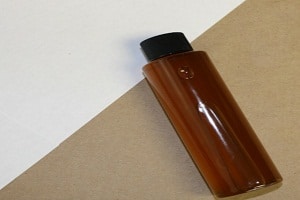There are many of us who feel like we’re constantly in pursuit of hair that’s smooth and delicate. A common element in skin-softening products including lotions, creams, and serums, is Lanolin. Do you think that lanolin can do the same for your natural hair?

Sheep’s sebaceous glands create lanolin, a thick, oily substance. It’s a great moisturizer for hair and skin, and it also serves as a water barrier. It is easily acquired and is a renewable resource because it is a byproduct of the wool-gathering and refining process. As a result, lanolin has been utilized as an emollient in hand and body lotions, as well as in hair treatments, for hundreds of years. Compared to vegetable or mineral oils, many people believe that animal oils are better for human skin and hair.
In contrast to oils, lanolin largely contains cholesterol and alcohols, as well as fatty acids. Lanolin oil’s ability to trap water is what allows it to nourish natural hair and it also is capable of penetrating the skin cells. As a result, the skin retains more of its natural moisture. This means that lanolin may have the same impact on natural hair as it does on our skin.
The emollient and moisture-retaining properties of lanolin oil make it a powerful element in the fight against dryness when applied to wet or damp hair. If you apply it to dry hair, it won’t work as expected since there is no water to trap in. The waxier texture of lanolin makes it more difficult to remove from hair than other hair oils, however bathing with a cleaning shampoo or apple cider vinegar can assist.
When it comes to curly hair, lanolin is often thought to be too heavy and oily to be used extensively, although this is truly depending on the extent of curl. People with slightly wavy hair may find it too much, while those with severely curly hair can benefit much from it. Because of its unique and complicated chemical composition, it should be easy to remove from hair with a mild shampoo or conditioner.
When combined with other emollients, lanolin’s anti-inflammatory qualities can help decrease and relieve inflammation and irritations. In addition to keeping your scalp hydrated, it can shield your skin from future outbreaks of the same problems.
In addition, you won’t have to worry about lanolin ruining the pH balance on your scalp. Keep in mind that if your scalp is unhealthy, it may take longer for your hair to grow naturally.
In addition to repairing hair, lanolin wax also conditions the scalp, decreasing dandruff and irritation. Use this wax for both purposes. It works to tame frizz and add body and volume to curly or wavy hair.
For the greatest results, it’s ideal to use lanolin oil with other emollients. Use essential oils and lanolin sparingly when it comes to hair care. Excessive usage may cause your hair to get weighed down and will create buildup on your curls.
With other popular oils used in natural hair, lanolin does not cause any problems. Lanolin, on the other hand, maybe used in combination with other oils. If you don’t like the thick, sticky viscosity of castor oil, you can use this as a replacement instead.
Shampoo, conditioners, pomades, and moisturizing lotion all contain lanolin. The shampoo contains a little quantity of this ingredient, and it may be used in the same way as other clarifying shampoos. Gently massage your hair, then rinse completely with water after applying the product.
Lanolin oils and lanolin-containing products are readily accessible on the market, online, or even brick and mortar shops. You may find and purchase it at Make Your Own Buzz, an online store that sells organic and vegan ingredients for making your own hair and skincare products at a reasonable cost.
For more information about mct fractionated coconut oil and menthol crystals Please visit: Chemistry Connection.




